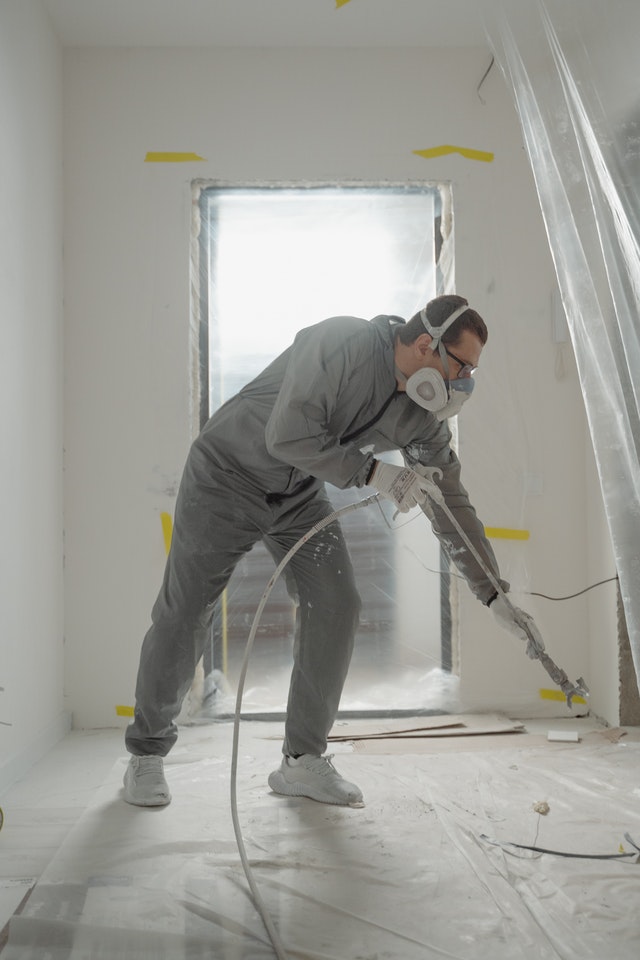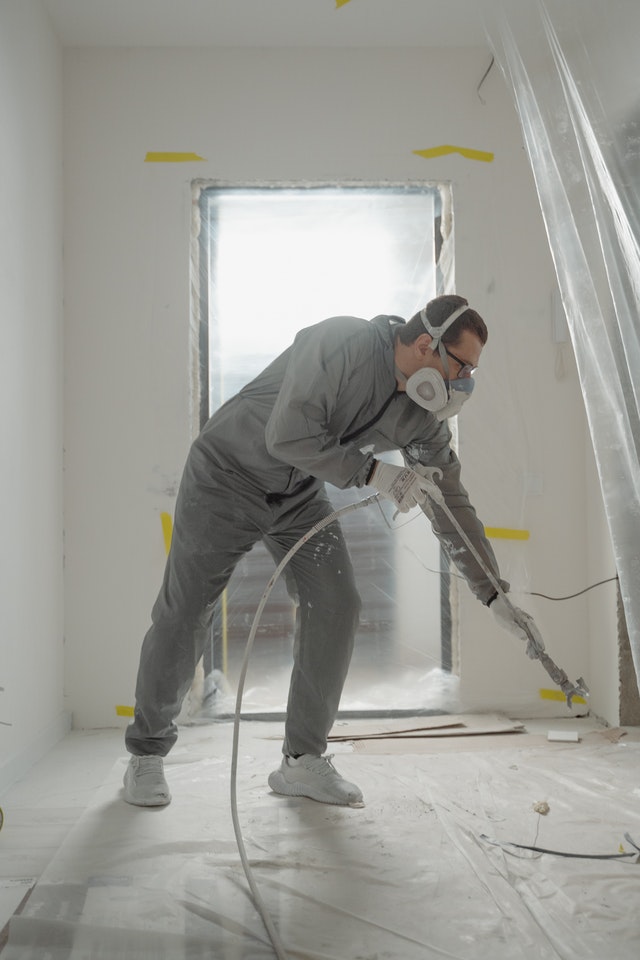
There is no better way to become a successful real estate investor than by learning from those who’ve already done it. One of the greatest investors in this world, Warren Buffett, gave the same piece of advice when he said, “In the business world, the rearview mirror is always clearer than the windshield!”
Luckily, many real estate investors are more than willing to share their rearview mirrors with you.
Here are five of the most influential, high-volume real estate investors in the industry today. These real estate icons generously share their thoughts and experiences on social media, making it easy for you to follow and learn from them on a daily basis.
Max Maxwell
At the ripe age of 21, Max acquired his real estate broker’s license and began selling properties. He experienced the 2008 bubble burst and continued on this journey through real estate wholesaling. Years later, Max set up his first real estate investment company, Cash Homes Triad. He set a personal goal to earn six figures—which he did by December of 2017.
In two years, he generated over $2 million in wholesaling fees alone.
Today, Max Maxwell is known as one of the top real estate investors in the country. He hosts annual Wholesaling Elite Live events—where one of them garnered over 1,200 attendees—dubbed the biggest wholesaling event in history.
Quoting from his website, “It is my strong desire to help others achieve financial freedom. By using my social media presence and hosting meetups and events, I hope to directly impact the lives of millions. Remember, you’re only one deal away!”
Here are the links for you to follow Max Maxwell online:
- Max Maxwell’s LinkedIn
- Max Maxwell’s official website (where you can subscribe to weekly newsletters)
- Max Maxwell’s Facebook (54,989 followers)
- Max Maxwell’s YouTube (239k subscribers)
- Max Maxwell’s Instagram (230k followers)
Max Maxwell constantly posts entrepreneurial tips on his Instagram and in-depth real estate advice on his YouTube channel.
Raul Bolufe
Raul Bolufe is a CEO, investor, and coach in the real estate community. By his 23rd birthday, he famously flipped a total value of $15 million and made $355k off the Multiple Listing Service (MLS).
Today, he is the president of the growing company Capital Rise Investments LLC and has done over 200 wholesale deals since his first one in 2014. He is passionate about sharing entrepreneurial advice and wholesaling-specific tips for real estate beginners looking to scale their businesses.
Raul Bolufe hosts the Flipping Miami podcast, where he talks about the following topics:
- His average and highest monthly profit
- His experience with real estate investing
- His unique technique that grew his business
- His tips on Section 8 and why it matters in investing
- His best tips on how to search and land the best deals on MLS
Here are some of his other profiles online that you can follow:
- Raul Bolufe’s LinkedIn
- Raul Bolufe’s official website
- Raul Bolufe’s Facebook (personal account)
- Raul Bolufe’s YouTube (679 subscribers)
- Raul Bolufe’s Instagram (10.4k followers)
Raul Bolufe posts generic advice for all entrepreneurs on his Instagram account and shares real estate wholesaling how-to videos on YouTube.
Tom Cafarella
Tom Cafarella is a real estate investor and broker-owner. He is considered to be one of the most successful real estate investors in Boston, Massachusetts. He lives by the motto “If you’re not happy with the work that you do, you’re never going to be great at it” and encourages all aspiring real estate investors to chase their dreams—just like he did.
Today, Tom Cafarella is an expert at building and scaling real estate businesses. He has acquired the company Ocean City Development LLC. In addition, he passionately teaches other people how to increase deals, scale their return on investment (ROI), and how to gear their mindset towards investment success.
Follow and learn from his story and company here:
- Tom Cafarella’s LinkedIn
- Tom Cafarella’s official website (where they have free live training)
- Tom Cafarella’s podcast
- Tom Cafarella’s Facebook (32,369 followers)
- Tom Cafarella’s YouTube (777 subscribers)
- Tom Cafarella’s Twitter (626 followers)
Tom Cafarella regularly shares valuable and practical tips across multiple channels—YouTube, Facebook, Twitter, and his podcast “Massachusetts Real Estate Careers with Tom Cafarella.”
Joe McCall
Joe McCall is the host of Real Estate Investing Mastery Podcast (ranked 4.8 out of 5.0 by 559 reviews on Apple Podcasts), where he shares the secrets of wholesaling and lease options to earn full-income figures. He helps people “escape the 9-5” by holding valuable conversations with successful real estate investors, discovering new strategies to implement in your real estate investment and business.
He is also the author of four real estate investing books, including one about wholesaling lease options (a fast and easy way to make money from real estate) and another about how to make extra money flipping houses while on vacation.
Here are some of his social media profiles that you can visit and follow:
- Joe McCall’s LinkedIn
- Joe McCall’s official website
- Joe McCall’s Facebook (7,914 followers)
- Joe McCall’s YouTube (14.1k subscribers)
- Joe McCall’s Twitter (5,123 followers)
Joe McCall posts practical how-to content on both YouTube and Twitter.
Additionally, he also speaks at conferences and workshops nationwide. His talks give all investors the necessary information on marketing, automation, and delegation in the real estate industry.
He’s the guy Raul Bolufe learned his business growth hacks from!
Graham Stephan
If you’ve been watching real estate videos on YouTube, you’ve come across Graham Stephan.
Graham Stephan is a real estate agent that has gained a significant following online due to his real estate accomplishments and valuable lessons for investors. His content centers around financial independence and the importance of investing correctly.
Graham Stephan is his own testimony, as he famously skipped college to jump into the real estate scene immediately. He got his real estate license at the age of 18 and earned $500 on his first commission. By the time he was 27, he had sold a total of $120 million worth of real estate and has earned up to $1.6 million a year—being praised by Kevin O’Leary for his impressive accomplishment.
Now that he’s 30 years old, he has reached a staggering net worth of around $6.5 million. He has served celebrity clients such as Orlando Bloom, Chloe Grace Moretz, and Wale. In addition, he works as a realtor associate for the luxury property brokerage, The Oppenheim Group.
Follow Graham Stephan via these links:
- Graham Stephan’s LinkedIn
- Graham Stephan’s official website
- Graham Stephan’s Facebook (9,250 followers)
- Graham Stephan’s YouTube (3.22M subscribers)
- Graham Stephan’s Instagram (378k followers)
- Graham Stephan’s Twitter (57.8k followers)
Since 2017, Graham Stephan has decided to pursue YouTube as a full-time job. All his videos are for teaching real estate investors just like him.
Conclusion: You Can Be Next
It’s never been easier to learn from other investors today. With the rise of the internet and the generosity of successful real estate investors, the world of information and inspiration is literally at our fingertips!
Follow Max Maxwell, Raul Bolufe, Tom Cafarella, Joe McCall, and Graham Stephan for daily lessons and tips on becoming successful in the real estate scene. Their experience defines our future success.
Who knows… You just might be featured in an article like these in the future!
There are way too many influential people in the real estate industry we can all learn from. Anybody else you’d like to add to our list?
Disclaimer: We are not endorsing any of these investors or their advice. Always exercise caution when taking investment advice from people on the internet!
Image courtesy of Rodnae Production




